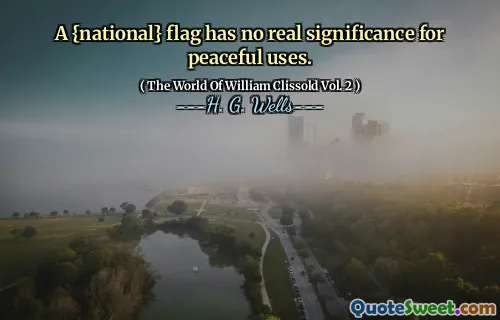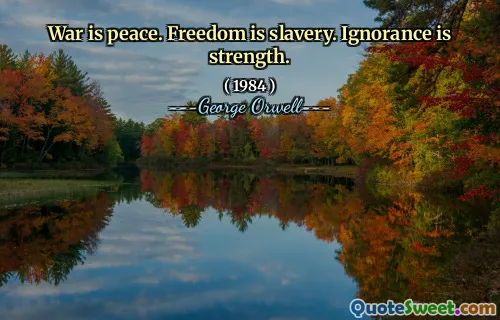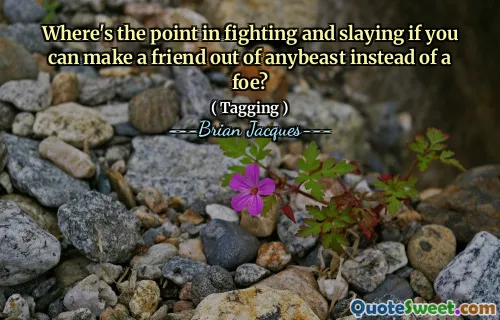
A {national} flag has no real significance for peaceful uses.
This quote suggests that the symbolism of a national flag is often disconnected from the true purposes of peace and cooperation among nations. Flags are venerable symbols, representing a country's identity, history, and values. However, they can also be misused as tools of division, nationalism, or even conflict. In a world striving for peace, the presence of flags should ideally serve as a marker of shared ideals and collective human interests rather than tools for asserting supremacy or fostering hostility. When nations focus solely on their flags as symbols of superiority, it detracts from the fundamental goal of peaceful coexistence. The quote encourages a reflection on the idea that true peace relies not on symbolism but on actions, mutual respect, and agreements that transcend superficial identifiers. It warns against conflating symbolism with substantive harmony and highlights the importance of moving beyond symbols to embrace genuine diplomacy and understanding. Ultimately, the significance of flags should be rooted in their capacity to inspire unity and peace, not conflict or division. This perspective calls us to reconsider how symbols are used and to ensure they serve broader human purposes rather than narrow political agendas. In a global context, prioritizing actions over symbols can foster a more peaceful and cooperative world, emphasizing that the true power of a nation lies in its commitment to peace, justice, and shared prosperity, rather than in its emblems or icons.



